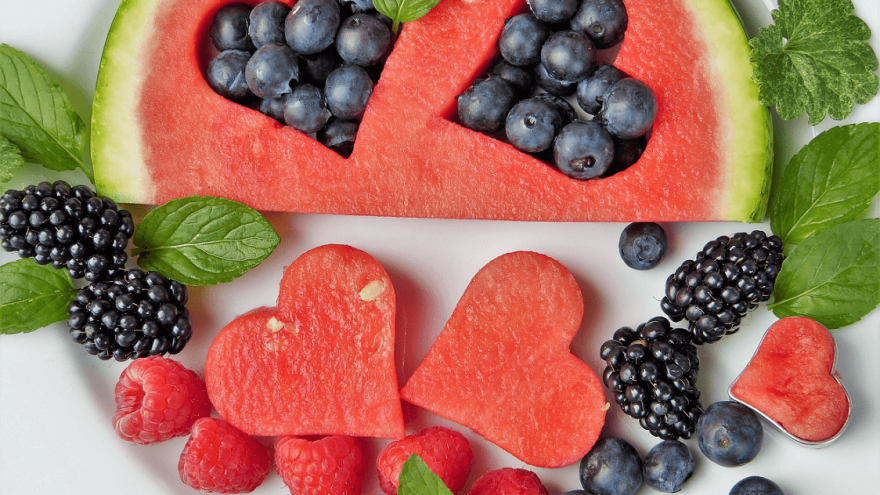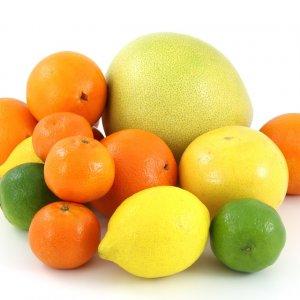Eat Your Fruits!

In today’s diet crazed day and age, you have probably seen some pretty extreme diet and “health” trends. Among the more popular fads right now include the keto diet in which dieters survive mostly on fats and proteins, (basically a newer version of the Atkins Diet and definitely NOT a wise choice, especially for endurance runners who absolutely need loads of carbs to power them through intense training periods) the Paleo Diet and Whole 30 Diet Challenge that focus on eating only foods that ‘cavemen’ would eat and ‘whole’ foods (whatever that means… last time I checked, there are not really ‘half’ foods and ‘whole’ foods but this is why the diet industry is a multi-billion dollar con artist), and diets that take the ‘guesswork’ out for dieters, such as Jenny Craig and NutriSystem, both companies that send pre-packaged snacks and meals to the dieters. Another diet trend you might have been alerted to is the fear of eating fruits – be that “too many” or “too much,” or even at all. But before you get all restrictive about your banana intake, consider all the many added nutrition and health benefits fruits add to a well-balanced diet, as well as how they can be incorporated into your training nutrition plan to really boost your endurance in the ‘long run’.

Fruits Are A Natural Source of Carbohydrates
Ask any runner, and they will likely agree that one of the best parts about endurance sports, sporting events, and races are the pre-race carb load. Some runners might stick to a blander tasting bowl of oatmeal, sweet potato chunks, and lean grilled meat the night before a race (and if that works for you, then GREAT!) while others might be more on the side of “Team Pasta Party,” downing a heaping plate (or two) of noodles and sauce in order to fill up those glycogen stores. But you should also consider throwing in an apple or a handful of grapes into that carby rotation. Fruits often get a bad reputation for being deemed ‘too sugary.’ In reality, these are natural sources of sugars that the fruit produces, and like all sugars, are a form of carbohydrate that the body can quickly break down and use for energy and fuel. This is why you see a lot of endurance athletes chowing down on bananas before, during, or after a long race. The sugars (carbs) in the banana are digested quickly and help provide a readily available source of energy. Fruits are also extremely handy, and easy to pack and store. This makes for easy lunch and snack packing, and is especially beneficial for folks who are constantly on the go from activity to activity, and need to fuel up on foods that are healthy but also do not necessarily require extended refrigeration (though you might totally prefer the taste of a crisp, cold Pink Lady apple as opposed to a room temperature one). Even if you are new to running, and not really logging that many miles, your body NEEDS carbohydrates. The human body was created to survive on three macronutrients: carbs, fats, and proteins. You can’t expect your body (or your brain) to perform its best – no matter how much or little exercise or activity you do each day – if it is deprived of the adequate amount of carbs that it needs!

Fruits are Nutritional Powerhouses
Not only do fruits round out your packed lunch of a turkey sandwich and pretzels dipped in peanut butter, but they make your plate colorful! And this has benefits beyond just aesthetic. Typically, a colorful plate indicates a myriad of different vitamins and minerals, as certain vitamins, minerals, and antioxidants are often associated with and linked to specific colors. For example, the blue or purple-ish tint of blueberries, plums, and raisins is due to phytonutrients call anthocyanins, a flavonoid. Phytonutrients are created by plants to fend off against harmful insects and ultraviolet radiation, and this also transfers to humans when we consume the fruits of these plants. These phytonutrients act as antioxidants in the human body, to help fight dangerous UV light, cancer, and carcinogens, and have even been linked to helping control the onset of obesity. Yellow and orange fruits, like pineapples, pumpkins, lemons, oranges, and mangoes, are indicative of containing Vitamins A and C, and these vibrant colors are mainly from the carotenoids lutein and zeaxanthin. These carotenoids have been linked to helping reverse age-related macular degeneration, (i.e. blurred vision) and cataracts. Strawberries, apples, and pomegranates that range in beautiful pink and red hues do more than just make for a pretty fruit bowl! Lycopene is another carotenoids group, found in these red fruits, which acts somewhat like another antioxidant in the body’s fight against the damaging effects of UV light and tobacco.

Fruits Are Easy!
As a runner, your days get jam-packed with activities – especially if you’re trying to train for a long distance or endurance race. Not only do you have to carve out time to squeeze your runs in around an already busy schedule that is filled with work, meetings, extra-curricular activities, family events, errands, and chores, but you are trying to make sure you are taking care of your body in other ways- i.e. fueling it properly and making sure you are stretching, icing, and resting your aching muscles. You need (and, let’s face it, DESERVE) a few shortcuts to make your life easier. Fortunately, fruits are a really easy option for your meal planning and prepping. Most don’t require extensive refrigeration, so they’ll last just fine in a lunch box (or even just in your gym or work bag). Just throw an apple, banana, or baggy of blueberries into your lunch tote and you are good to go! Plus, they’re versatile. So not only can you eat them as part of the main meal or just as a snack, but you can throw them into smoothies, yogurts, on top of desserts, or just along with a side of peanut butter.
Sources
- , 5 Fruits for a Runner's Diet, Run Society Blog
Latest Articles
 Is Running on a Treadmill Easier Than Running Outside?Runners have their own preferences, whether it is treadmill running, running outside on the road, or exploring trails. So...
Is Running on a Treadmill Easier Than Running Outside?Runners have their own preferences, whether it is treadmill running, running outside on the road, or exploring trails. So... Is It OK to Use Trail Running Shoes on the Road?While trail running shoes can be used on roads, especially in situations where a runner encounters mixed terrains or pref...
Is It OK to Use Trail Running Shoes on the Road?While trail running shoes can be used on roads, especially in situations where a runner encounters mixed terrains or pref... How to Fix Sore Quads After Running?Rest, ice, gentle stretching, and over-the-counter pain relievers can help soothe sore quads after running. Also, ensure ...
How to Fix Sore Quads After Running?Rest, ice, gentle stretching, and over-the-counter pain relievers can help soothe sore quads after running. Also, ensure ... 10 Fruits With The Most Electrolytes to Replace Sports DrinksThese fruits are high in electrolytes such as potassium, magnesium, and calcium, essential for hydration, muscle function...
10 Fruits With The Most Electrolytes to Replace Sports DrinksThese fruits are high in electrolytes such as potassium, magnesium, and calcium, essential for hydration, muscle function...

